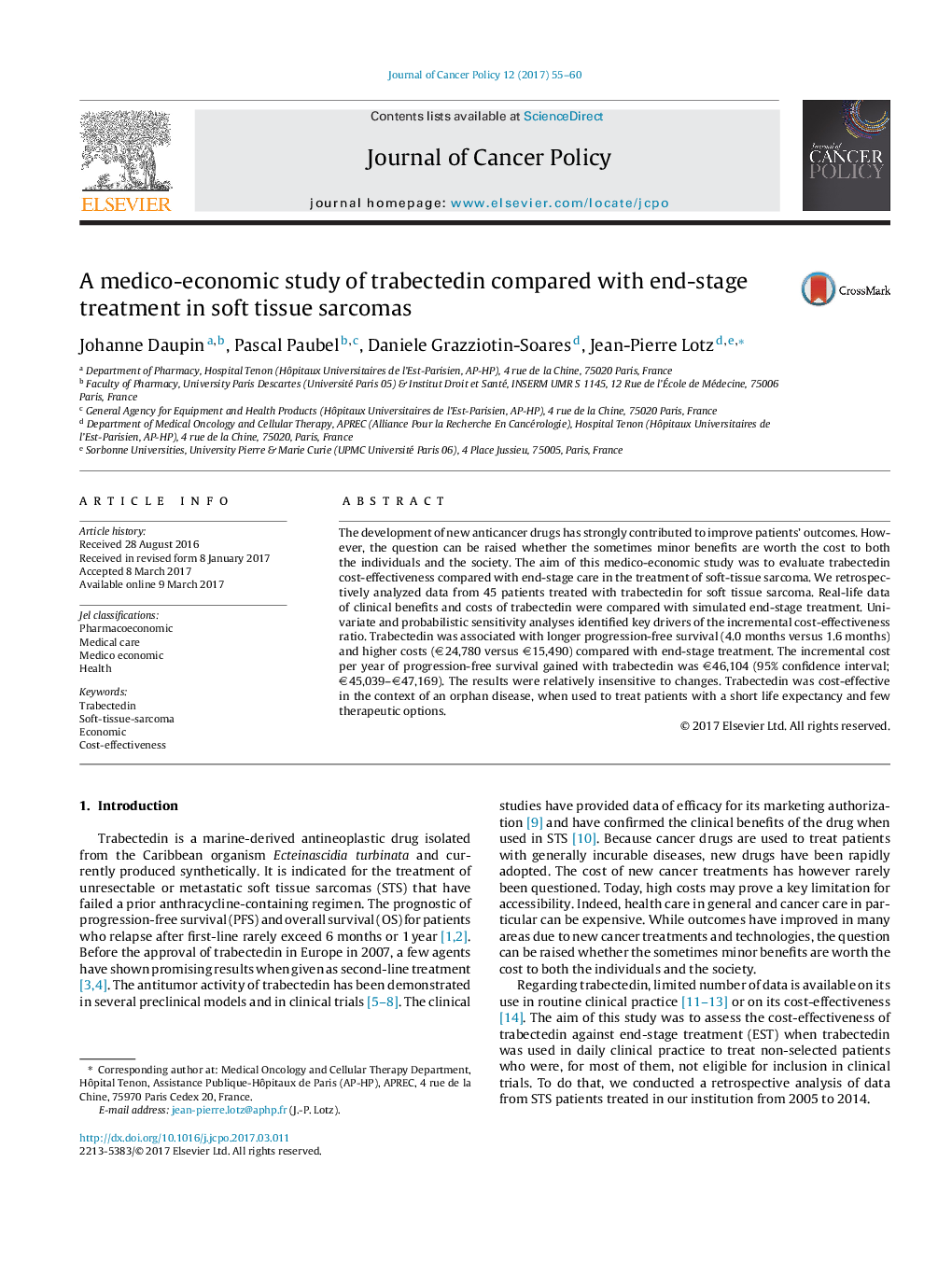| Article ID | Journal | Published Year | Pages | File Type |
|---|---|---|---|---|
| 5701363 | Journal of Cancer Policy | 2017 | 6 Pages |
Abstract
The development of new anticancer drugs has strongly contributed to improve patients' outcomes. However, the question can be raised whether the sometimes minor benefits are worth the cost to both the individuals and the society. The aim of this medico-economic study was to evaluate trabectedin cost-effectiveness compared with end-stage care in the treatment of soft-tissue sarcoma. We retrospectively analyzed data from 45 patients treated with trabectedin for soft tissue sarcoma. Real-life data of clinical benefits and costs of trabectedin were compared with simulated end-stage treatment. Univariate and probabilistic sensitivity analyses identified key drivers of the incremental cost-effectiveness ratio. Trabectedin was associated with longer progression-free survival (4.0 months versus 1.6 months) and higher costs (â¬24,780 versus â¬15,490) compared with end-stage treatment. The incremental cost per year of progression-free survival gained with trabectedin was â¬46,104 (95% confidence interval; â¬45,039-â¬47,169). The results were relatively insensitive to changes. Trabectedin was cost-effective in the context of an orphan disease, when used to treat patients with a short life expectancy and few therapeutic options.
Related Topics
Health Sciences
Medicine and Dentistry
Oncology
Authors
Johanne Daupin, Pascal Paubel, Daniele Grazziotin-Soares, Jean-Pierre Lotz,
